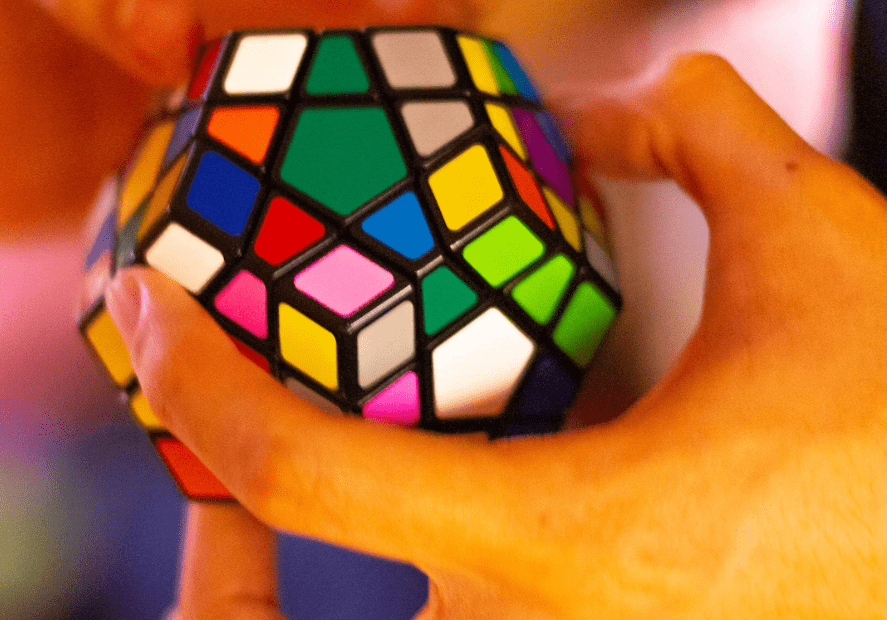What Meditation Means
Discover what meditation is and the numerous benefits of meditation.

Selfpause Affirmation App
Download the app to get 1,000’s of affirmation meditations and everything you need to write, record and listen to your own.
If you are looking for a way to control your mind and find inner peace, then you should learn what meditation means. Meditation is a mental exercise that focuses on slowing down the mind’s constant chatter. There are numerous benefits of meditation, from calming the mind to lowering stress levels. This practice can also help you find happiness and positive mental states.
Meditation is a mental exercise

Meditation is a mental exercise that can help relieve stress and improve our overall well-being. Its roots are in ancient religious practices, but modern research shows that it can also be an effective treatment for anxiety and depression. Meditation involves focusing on the present moment and challenging our habitual way of thinking. This has been shown to create measurable changes in brain matter.
Secular meditators find that by clearing their minds, they can perceive the fundamental nature of reality. The fundamental truths of the Universe do not require new knowledge, and the great truths that we already know lie behind all this fog. The mind tends to create a dense cloud, so it’s important to allow the fog to dissipate so that a clear view can emerge.
The brain and body benefit from both physical and mental exercise. But physical exercise alone cannot tackle the stress that life throws at us. Chronic stress can result in many negative effects, including sleep problems, high blood pressure, a weakened immune system, and even weight gain. But meditation can help us cope better with stress by shifting our attention and calming our minds. Fortunately, it’s very easy to start, and there are many apps and other tools that can help us find the perfect meditation routine.
Achieving a heightened state of awareness through meditation can greatly improve our overall health. While many meditation techniques are similar, they all revolve around one central component, breathing. Through the practice of meditation, you learn to observe your thoughts and feelings without judgment. The goal is to increase awareness and gain a deeper sense of life.
It helps you control your thoughts

One of the most effective ways to control your thoughts is through meditation. Meditation can help you relax your body and mind, allowing you to think clearly and calmly. You’ll be better able to control your thoughts and react appropriately to familiar situations. You’ll notice a difference when you meditate regularly.
In the first phase of meditation, you can use a mantra or breathing technique to bring your attention back to your breath. This allows you to bypass the “me” thought that has been running through your mind. During this phase, your thoughts are more rational, and they’re more likely to be neutral. If you practice meditation regularly for a few weeks, you can activate your dorsomedial prefrontal cortex, which can help you develop empathy and compassion.
When you start meditating, it’s important to stay still. You should be aware of your breath throughout the whole body. When thoughts pop into your head, acknowledge them but don’t engage in them. As soon as they pop up, just return to your breathing, which will help you focus again. Some people even use mantras to help them concentrate. This helps them stay focused and less prone to interruptions.
In addition to improving your ability to control your thoughts, meditation can improve your relationships with other people. It increases your empathy and helps you pick up on other people’s cues. It also improves your emotional stability, reducing negative influences on your life.
It helps you find inner peace

Meditation is a powerful tool to create inner peace. It can help you to rewire your brain and create a calming, happy place to retreat to when you are feeling stressed. It can also help you improve your relationships and form deeper bonds with others. It can also help you to discover your true happiness.
First, you need to set up a calm, peaceful environment. It is helpful to wear comfortable clothes and put on some soothing music. You can also diffuse essential oils or light a candle for aromatherapy. You should also find a comfortable position to meditate in. You can either sit in a chair or lie down on a meditation mat. Once you’re in the right position, begin by taking deep breaths and focusing on your breathing.
Another helpful tip is to practice self-kindness. By being kind and helpful to others, you will attract more goodness into your life. Kindness also helps you get through difficult times. You can start by rephrasing negative thoughts or simply speaking kind words to yourself. You’ll feel better and more relaxed after doing such acts.
In addition to helping you relax and find inner peace, meditation also improves your concentration. When you’re focused on your breathing, your thoughts become clearer and more positive. You’ll also develop stronger willpower.
It is not a religious activity

Meditation is not a religious activity and does not require any particular religious beliefs or practices. Rather, it is an exercise in the subtle effort. The mind is an enormous system, containing billions of neurons, each of which communicates through electrical and chemical signals. Each neuron is connected to hundreds or thousands of others. These neurons form networks throughout different areas of the brain and do various jobs. Those who meditate regularly have denser brain tissue and larger brain areas, which means they have stronger connections.
There are many different types of meditation. Some involve chanting prayers and others involve visualization of specific incidents or places. Some of these are based on the teachings of different religions, including Christianity. Other types focus on breathing techniques and movements that help the mind focus. Some people may also try their hand at different meditation techniques.
While meditation is not a religious activity, some people have religious beliefs and use them to enrich their spiritual practices. Some people may even experience religious feelings through meditation. While meditation is not a religion, it has many similarities with prayer. A person can use meditation to deepen their relationship with God or achieve enlightenment.
The practice of meditation is not a religious activity, but it can help reduce stress and improve your quality of life. It can also enhance self-concept and perception.
It is not a spiritual practice

Though meditation is often associated with spirituality, it is not necessarily associated with a particular religion. Many people who practice meditation are not religious in any way. It has been shown to improve stress, anxiety, depression, and pain, as well as improve self-concept, perception, and well-being.
There are two main types of meditation: Samatha, which means “calm abiding,” and vipassana, which means “insight.” Samatha focuses on calming the mind through focused attention, while vipassana focuses on investigating the nature of reality. In either case, the mind monitors a fleeting experience.
The primary aim of many meditation practices is to increase feelings of compassion and loving-kindness, so affective processing is likely to occur. Understanding the purpose of practice is essential for assessing the spiritual aspects of meditation. In my lab, I study how the physiological changes induced by meditation relate to emotional and moral content. This research will help me understand the benefits of meditation for society as a whole.
Secular meditators find that the fundamental nature of reality is apparent when the mind is quieted. However, this doesn’t mean that they learn anything new. Many of the great truths of the Universe are already familiar to people, and the practice of meditation simply allows these things to come to light.
It is a mental exercise

More people are discovering the benefits of meditation. This practice aims to quiet the mind and tune out the mental clutter. It is an excellent way to reduce stress. According to a recent survey, over 36 million Americans have tried meditation at least once. In addition, meditation can reduce blood pressure and chronic pain. Regular practice of meditation also improves resilience.
While meditation is not a religious practice, it can help people connect to a higher power. People who meditate regularly have lower rates of dying from any cause. They also have lower rates of cardiovascular disease and cancer. This makes meditation a great tool for achieving a spiritual connection. It has several health benefits, including improving concentration and helping people relax.
There are several forms of meditation, each with its benefits. Generally, it involves focusing attention and quieting the mind to achieve a heightened state of awareness. It can be practiced for any length of time, from a few minutes to the entire waking day. Some forms of meditation are more intense than others.
Research shows that meditation improves attention, reduces anxiety, and increases calmness. It can also help people recognize negative emotions and cope with them more effectively. Whether you practice it in a group setting or your own home, meditation can benefit people of all ages. It helps you gain perspective and balance in life.
Our Top FAQ's
Meditation is a mental practice that involves focusing one’s attention and awareness in order to promote relaxation, self-awareness, and a sense of calm.
Meditation is typically practiced by sitting or lying down in a comfortable position, closing one’s eyes, and focusing on one’s breath or a specific mantra or object. It can also involve practicing mindfulness, which involves paying attention to one’s thoughts, emotions, and physical sensations in a non-judgmental way.
The potential benefits of meditation include reduced stress and anxiety, improved focus and concentration, increased self-awareness, and improved physical and emotional well-being.
Some common misconceptions about meditation include the belief that it is religious or spiritual in nature, that it requires a certain level of proficiency to be effective, and that it is only for people who are interested in spirituality or self-improvement. In reality, meditation can be practiced by anyone, regardless of their religious beliefs or spiritual practices, and can be effective even for beginners.
To get started with a meditation practice, it is recommended to find a quiet, comfortable space where you can sit or lie down without being disturbed. Begin by focusing on your breath, or on a specific mantra or object, and try to maintain your focus for a few minutes. Over time, you can gradually increase the length of your meditation sessions, and explore different techniques and approaches to find what works best for you. It may also be helpful to seek guidance from a trained meditation teacher or to use meditation apps or other resources to help you get started.
